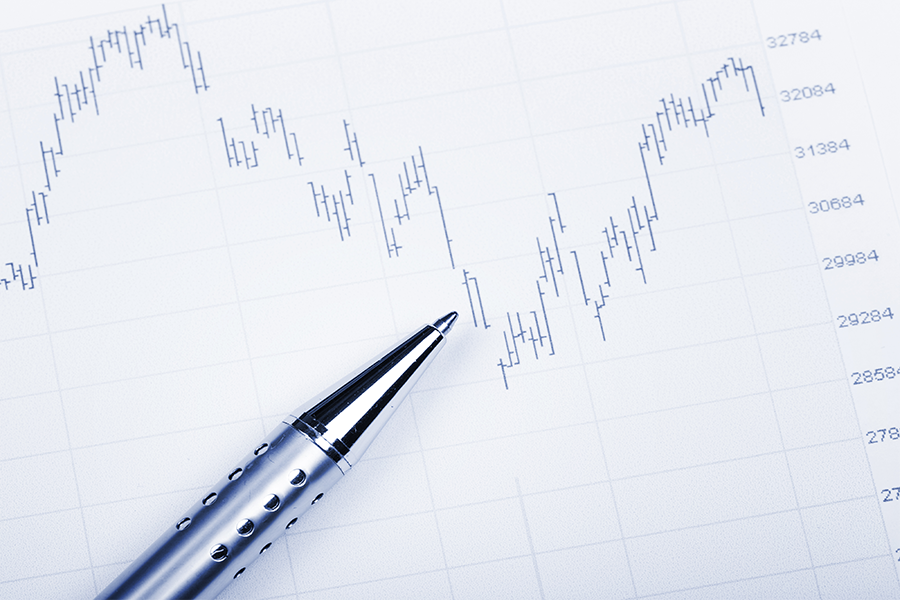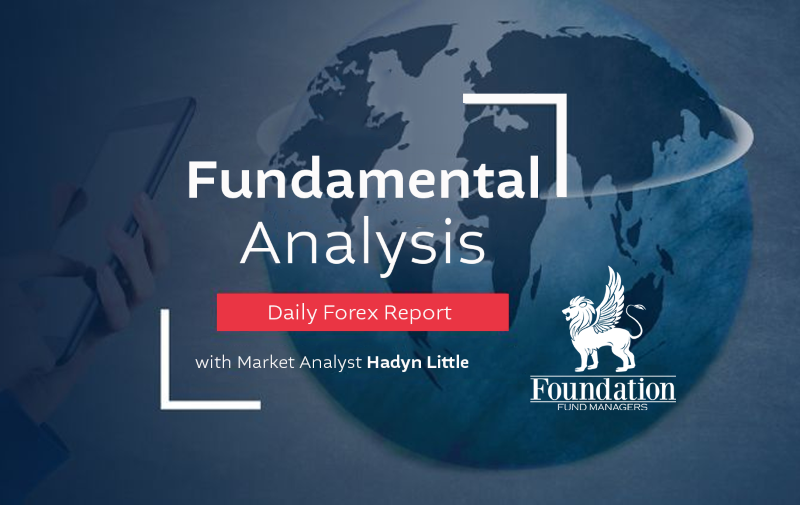
Ask yourself this question: what problem am I trying to solve?
January 8, 2024
Are you in business? Do you have everything you need to succeed?
April 20, 2024
Global economic resilience was exemplified through the grit of South Africa’s Dricus Du Plessis as he beat Sean Strickland to claim the UFC middleweight title on Sunday morning. “Stillknocks” as he is known was not tipped to clinch the title, but he did. The global economy was tipped to fall into recession, but it hasn’t. Global economic activity, as measured by Gross Domestic Product (GDP) is estimated to have been 3% in 2023, according to the IMF. Employment has held up in most regions while inflation is on the way down. Globally, stock markets have risen by more than 20%. While this average performance conceals wide variation, it is fair to say that 2023 turned out to be a decent year for investors.
The armed conflicts in the Middle East and Ukraine continued to dominate headlines. In addition, there are ongoing civil wars in multiple nations. These and other geo-political events, and the ever-increasing threat of the Middle East conflict continuing to spread holds the potential to rattle the world and its investors. The war by proxy between Iran and USA has already drawn in Lebanon, Iraq, Syria, Yemen, Pakistan, and the U.K.
The armed conflicts in the Middle East and Ukraine continued to dominate headlines. In addition, there are ongoing civil wars in multiple nations. These and other geo-political events, and the ever-increasing threat of the Middle East conflict continuing to spread holds the potential to rattle the world and its investors. The war by proxy between Iran and USA has already drawn in Lebanon, Iraq, Syria, Yemen, Pakistan, and the U.K.
Reuters reported that 2023 was the warmest year on record. One after another, temperature records fell last year as temperatures skyrocketed. Deadly floods, heatwaves and storms have unfolded against the backdrop of the planet’s warmest year on record. Whether this has been caused by human actions or is part of the earth’s long term climate pattern remains a debate. Setting that aside, an increasingly warmer planet has dire consequences for all of us and if we can do something about it, we sincerely should.
Port activity around the world has been under pressure due to a drought in Panama (affecting the capacity of the Panama Canal), attacks on ships in the Red Sea by Houthi rebels (which has impacted traffic through the Suez Canal) and various other logistical and weather challenges. Despite this, a recovery is under way in global merchandise trade volumes following a recent slump, according to the World Trade Organisation’s (WTO's) Goods Trade Barometer. The bounce back is largely driven by automobile sales and production, as well as trade in electronic components.
Port activity around the world has been under pressure due to a drought in Panama (affecting the capacity of the Panama Canal), attacks on ships in the Red Sea by Houthi rebels (which has impacted traffic through the Suez Canal) and various other logistical and weather challenges. Despite this, a recovery is under way in global merchandise trade volumes following a recent slump, according to the World Trade Organisation’s (WTO's) Goods Trade Barometer. The bounce back is largely driven by automobile sales and production, as well as trade in electronic components.


Markets ended the year with a strong rally across most regions and asset classes. Global developed equities in December ended almost 5% higher in US dollars, while declining yields saw global bonds gain a little over 4%. Global equities landed just over 26% higher in 2023, underpinned by a strong rally in the S&P 500 (up 24%) and the NASDAQ 100 delivering its best annual performance (up 55%) since 1999. Local markets ended December and 2023 higher but lagged the world. South African shares (JSE All Share Index) added 2% in December taking the total return for the year to a little over 9%. Financials had a strong 12 months (up 21.5%) and Industrials also performed well (up 16.6%). Resources shares provided a drag on the total market as they shed almost 12% in 2023. Listed property shares (as measured by the S&P South Africa REIT total return index) ended the year with a flurry to just about break even while local bonds benefited from decreasing rates ending on 9.7% for the year. The rand strengthened against the major currencies in December but still gave up between 7% and 14% against the US dollar, Euro, and Pound Sterling during the last twelve months.
What’s in store for 24?
An election year like no other in 2024 more than half the world’s population will send their citizens to the polls. More people will have the opportunity to vote in 2024 than in any previous year but this will not necessarily lead to an explosion of democracy. Eight of the ten most populous countries in the world – Bangladesh, Brazil, India, Indonesia, Mexico, Pakistan, Russia, and the United States - will hold elections in 2024. In half of these, elections are neither free nor fair and many other prerequisites of democracy, such as freedom of speech and association, are absent. Elections in Bangladesh, Mexico, Pakistan (all hybrid regimes, which combine elements of democracy and authoritarianism), and Russia (an authoritarian one) are almost certain not to bring regime change. The likely showdown between Joe Biden and Donald Trump will vary from the sublime to the ridiculous but it is not only the biggest elections that will capture the world’s imagination: Taiwan’s vote in January will influence the island’s relations with mainland China at a critical juncture for the would-be independent republic. Against the background of Brexit and the election of Trump in 2016 and various subsequent political shifts to the right, it is exceedingly difficult to predict the outcome of any of these elections. What is nearly impossible is to guess the impact of each potential outcome on markets so investors will do well to remain diversified in their regional and asset allocation and stay invested.
An election year like no other in 2024 more than half the world’s population will send their citizens to the polls. More people will have the opportunity to vote in 2024 than in any previous year but this will not necessarily lead to an explosion of democracy. Eight of the ten most populous countries in the world – Bangladesh, Brazil, India, Indonesia, Mexico, Pakistan, Russia, and the United States - will hold elections in 2024. In half of these, elections are neither free nor fair and many other prerequisites of democracy, such as freedom of speech and association, are absent. Elections in Bangladesh, Mexico, Pakistan (all hybrid regimes, which combine elements of democracy and authoritarianism), and Russia (an authoritarian one) are almost certain not to bring regime change. The likely showdown between Joe Biden and Donald Trump will vary from the sublime to the ridiculous but it is not only the biggest elections that will capture the world’s imagination: Taiwan’s vote in January will influence the island’s relations with mainland China at a critical juncture for the would-be independent republic. Against the background of Brexit and the election of Trump in 2016 and various subsequent political shifts to the right, it is exceedingly difficult to predict the outcome of any of these elections. What is nearly impossible is to guess the impact of each potential outcome on markets so investors will do well to remain diversified in their regional and asset allocation and stay invested.


This year will also see the seventh democratic election in South Africa since 1994. The date has yet to be announced, but so far indications are that the ruling ANC is likely to lose support when compared to previous elections. The various parties’ campaigns will no doubt enjoy a lot of airtime and potential coalitions will be considered from all angles. The Daily Maverick reports that the ANC will likely need a coalition partner with which to govern in 2024. If the ANC obtains 48% at the poll, they will only need the support of a small party to form a government. This is currently the most likely outcome of a median voter turnout. But if its support flatlines more than this, then it could create a government with a surging EFF. An ANC / EFF government will be more populist and radical than a left-of-centre ANC with a minor partner.
Another topic that is likely to become a political playball in the run-up to the elections is the state of many of South Africa’s state-owned enterprises. Eskom has just released its system status outlook for 2024 which shows that there will be a shortfall of 2 000 MW or more (stage 2 load shedding) every week of the year. Transnet announced a R1.6 billion loss for the six months ending September 2023 (following a R5.7 billion loss in the previous financial year) while Denel, the Land Bank and Sanral are all struggling with meeting their debt obligations.
Another topic that is likely to become a political playball in the run-up to the elections is the state of many of South Africa’s state-owned enterprises. Eskom has just released its system status outlook for 2024 which shows that there will be a shortfall of 2 000 MW or more (stage 2 load shedding) every week of the year. Transnet announced a R1.6 billion loss for the six months ending September 2023 (following a R5.7 billion loss in the previous financial year) while Denel, the Land Bank and Sanral are all struggling with meeting their debt obligations.
Sadly, apathy may play a significant role in the election outcome. As service levels decline, dejected South Africans show less and less interest in the ballot box. There are 42.6 million eligible voters and only 26.8 million registered voters. Most eligible voters who have yet to register are young, revealing that unemployment and a sense of hopelessness has overcome our next generation.
Global growth will be under pressure in 2024 due to tight monetary policy, restrictive credit conditions and geo-political risk. However, adversity always unlocks opportunity.
Continue the journey with us throughout the year and…stay invested!
Global growth will be under pressure in 2024 due to tight monetary policy, restrictive credit conditions and geo-political risk. However, adversity always unlocks opportunity.
Continue the journey with us throughout the year and…stay invested!

